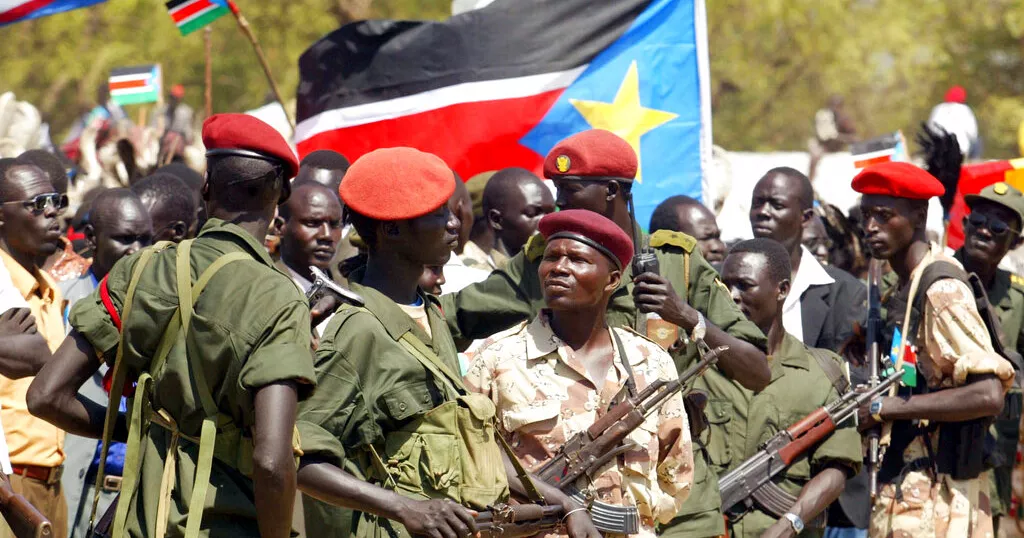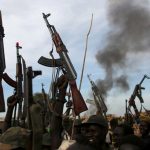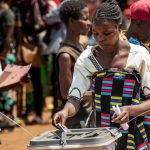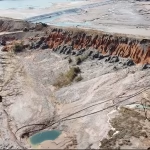South Sudan, the world’s youngest nation, has once again found itself at a critical juncture. A treason trial involving a prominent opposition figure has sparked widespread concern, reviving fears of renewed conflict in a country still healing from years of civil war. The political landscape in South Sudan has always been fragile, with ethnic rivalries, power struggles, and resource disputes fueling decades of instability. Now, as accusations of treason are brought to the forefront, many South Sudanese citizens fear that their nation could slip back into a spiral of violence. This article examines the unfolding crisis, its historical roots, the political stakes, and the potential implications for peace, stability, and the region as a whole.
- The Treason Trial at the Center of Controversy
- Historical Context of Political Instability in South Sudan
- Public Reaction and Growing Anxiety
- The Role of Ethnic Divisions in Political Trials
- Regional and International Implications
- Economic Pressures Fueling the Crisis
- Voices of Civil Society and Religious Leaders
- Potential Scenarios Moving Forward
- Expert Perspectives on the Crisis
- The Human Cost of Renewed Instability
- FAQs
- Why is the treason trial in South Sudan so significant?
- How has the public reacted to the trial?
- What role do ethnic divisions play in the crisis?
- How could the trial affect South Sudan’s economy?
- What are the possible outcomes of the treason trial?
- Conclusion
The Treason Trial at the Center of Controversy
The trial that has ignited public debate involves senior opposition figures accused of conspiring against the government. Authorities have alleged that these individuals engaged in activities that undermine state security, including plotting to overthrow the leadership. For South Sudanese officials, the charges are framed as a necessary step to safeguard national security. However, critics argue that the trial is politically motivated, designed to silence dissent and eliminate threats to the ruling elite.
Human rights groups have voiced concern about due process, transparency, and fairness in the trial proceedings. International observers, including the United Nations and regional bodies such as the African Union, have warned that politically charged prosecutions in fragile states like South Sudan often fuel further instability. The case has also drawn attention from neighboring countries that fear the ripple effects of renewed violence across borders.
Historical Context of Political Instability in South Sudan
To understand why the treason trial is such a flashpoint, one must revisit South Sudan’s turbulent history. The country gained independence from Sudan in 2011 after decades of armed struggle. The initial years of nationhood were marked by optimism, but by 2013, a violent power struggle between President Salva Kiir and his then-deputy Riek Machar triggered a bloody civil war. That conflict, which lasted until a fragile peace deal was signed in 2018, claimed an estimated 400,000 lives and displaced millions.
Although the peace agreement brought some stability, deep divisions remain. Ethnic tensions between the Dinka and Nuer communities, unresolved issues over power-sharing, and disputes over oil revenues continue to create flashpoints for conflict. In this context, a high-profile treason trial does not exist in isolation—it resonates deeply with citizens who have witnessed leaders use political trials as precursors to violence in the past.
Public Reaction and Growing Anxiety
The reaction to the trial has been polarized. Government supporters argue that no one is above the law and that treason charges are serious crimes that must be addressed decisively. On the other hand, opposition groups see the move as an attempt to intimidate critics and weaken the fragile coalition government.
Ordinary South Sudanese citizens, weary from years of suffering, view the trial with a mix of fear and skepticism. Many worry that political tensions could spill into the streets, reigniting clashes between rival groups. According to a recent survey conducted by a local civil society organization, more than 65% of respondents expressed fear that political disputes could lead to renewed violence. Stories from displaced families underscore this fear—many have only recently returned home after years in refugee camps, and the prospect of another conflict is unbearable.
The Role of Ethnic Divisions in Political Trials
Ethnicity has always played a critical role in South Sudanese politics. Leaders often mobilize support along ethnic lines, exacerbating divisions and fueling mistrust. The treason trial, though officially framed as a matter of national security, is widely perceived through the lens of ethnic identity. Critics argue that the government’s focus on prosecuting certain opposition figures could be seen as targeting their ethnic constituencies, potentially inflaming tensions between communities.
Experts caution that unless the trial is handled with utmost fairness and transparency, it could trigger ethnic-based mobilization. In the past, political disputes quickly escalated into violent ethnic confrontations, leaving communities devastated. The fear that history may repeat itself hangs heavy over the proceedings.
Regional and International Implications
South Sudan’s instability has always been a regional concern. The country shares borders with Uganda, Kenya, Sudan, Ethiopia, and the Central African Republic—states that have themselves experienced instability. Any renewed conflict in South Sudan could easily spill across borders, leading to refugee flows, arms smuggling, and economic disruption.
The United Nations Mission in South Sudan (UNMISS) has already called for restraint, emphasizing that political disputes must be resolved through dialogue, not violence. Similarly, the Intergovernmental Authority on Development (IGAD), which helped broker the 2018 peace deal, has urged leaders to de-escalate tensions. Meanwhile, Western governments have warned that if political repression deepens, aid and investment could be further restricted, worsening South Sudan’s economic woes.
Economic Pressures Fueling the Crisis
South Sudan’s economy is heavily dependent on oil, which accounts for nearly 90% of government revenues. Years of conflict, corruption, and global oil price fluctuations have left the economy in shambles. Inflation remains high, unemployment is widespread, and basic services are scarce. In such an environment, political instability carries an even greater risk.
Analysts note that when citizens face economic hardship, they are more likely to become disillusioned with leadership and vulnerable to recruitment by armed groups. The treason trial, therefore, is not just a political event—it is a catalyst that could worsen already dire living conditions if instability derails economic recovery efforts.
Voices of Civil Society and Religious Leaders
Civil society organizations and religious leaders in South Sudan have been some of the strongest voices calling for restraint and dialogue. Churches, which play an influential role in South Sudanese society, have urged political leaders to prioritize peace and reconciliation over personal rivalries. Archbishop Justin Badi Arama, head of the Episcopal Church of South Sudan, recently warned that “justice must not be manipulated as a weapon of politics,” urging leaders to handle the treason trial with fairness.
Grassroots organizations have also mobilized, hosting town halls and community meetings to discourage violence. Many activists argue that the country’s leaders should focus on implementing long-delayed reforms promised in the 2018 peace deal, such as establishing a unified national army and addressing transitional justice mechanisms.
Potential Scenarios Moving Forward
The outcome of the treason trial could significantly shape South Sudan’s trajectory in the coming years. Several possible scenarios are emerging:
- Fair Trial and Stability: If the proceedings are conducted transparently and fairly, and the accused are either acquitted or convicted based on solid evidence, the trial could strengthen the rule of law and demonstrate accountability.
- Politicized Verdict and Renewed Conflict: If the verdict is perceived as biased or politically motivated, it could spark protests, ethnic mobilization, and potentially armed clashes.
- Negotiated Settlement: Political pressure from regional and international actors could push leaders to resolve the matter through dialogue, possibly leading to reconciliation or a political compromise.
Each scenario carries risks and opportunities, but what remains clear is that the stakes are extraordinarily high for South Sudan’s fragile peace.
Expert Perspectives on the Crisis
Political analysts stress that the treason trial is a test of South Sudan’s institutions. If the judiciary can handle the case independently, it could build confidence in the rule of law. However, skepticism remains widespread. According to Dr. Luka Biong Deng, a South Sudanese academic, “The trial is not just about the individuals in the dock—it is about whether South Sudan can break the cycle of using political trials as a prelude to conflict.”
International experts also highlight the importance of external pressure. The United Nations and African Union have the leverage to encourage transparency, while donor countries can use aid as a tool to demand accountability. Without such interventions, many fear that South Sudan’s leadership may resort to old patterns of power consolidation at the expense of peace.
The Human Cost of Renewed Instability
Behind the political maneuvering lies the human reality of South Sudanese citizens. Millions of people remain food insecure, with humanitarian agencies warning of worsening conditions if instability escalates. The World Food Programme estimates that nearly two-thirds of the population requires humanitarian assistance. For many South Sudanese families, the political crisis is not an abstract issue—it is a matter of survival.
Refugees who fled previous conflicts worry they may be forced to run again. Mothers fear for their children’s education as schools are often the first to close during instability. Farmers dread losing yet another harvest to displacement. The human cost of political failure is profound and immediate.
FAQs
Why is the treason trial in South Sudan so significant?
The trial is significant because it involves high-profile opposition figures and raises concerns about political repression, fairness, and the potential for renewed conflict in a fragile nation.
How has the public reacted to the trial?
Public reaction has been divided. Some support the government’s stance on upholding national security, while many others fear the trial is politically motivated and could reignite violence.
What role do ethnic divisions play in the crisis?
Ethnic divisions are deeply intertwined with politics in South Sudan. Many perceive the trial as targeting specific communities, which could escalate tensions and trigger ethnic mobilization.
How could the trial affect South Sudan’s economy?
Instability from the trial could deter investment, restrict aid, and disrupt oil production, worsening an already fragile economy heavily dependent on oil revenues.
What are the possible outcomes of the treason trial?
The trial could lead to stability if handled fairly, renewed conflict if perceived as biased, or a political compromise if mediated by regional and international actors.
Conclusion
The treason trial unfolding in South Sudan is far more than a courtroom drama—it is a litmus test for the nation’s fragile peace and the resilience of its political institutions. At stake is not only the fate of the accused but also the stability of a country where millions still bear the scars of war. The outcome could either reinforce confidence in the rule of law or plunge South Sudan back into a devastating cycle of violence. What South Sudan needs most in this moment is leadership guided by wisdom, a judiciary that upholds fairness, and a society committed to dialogue over division. Only by choosing peace over conflict can South Sudan chart a path toward lasting stability and a brighter future for its people.





